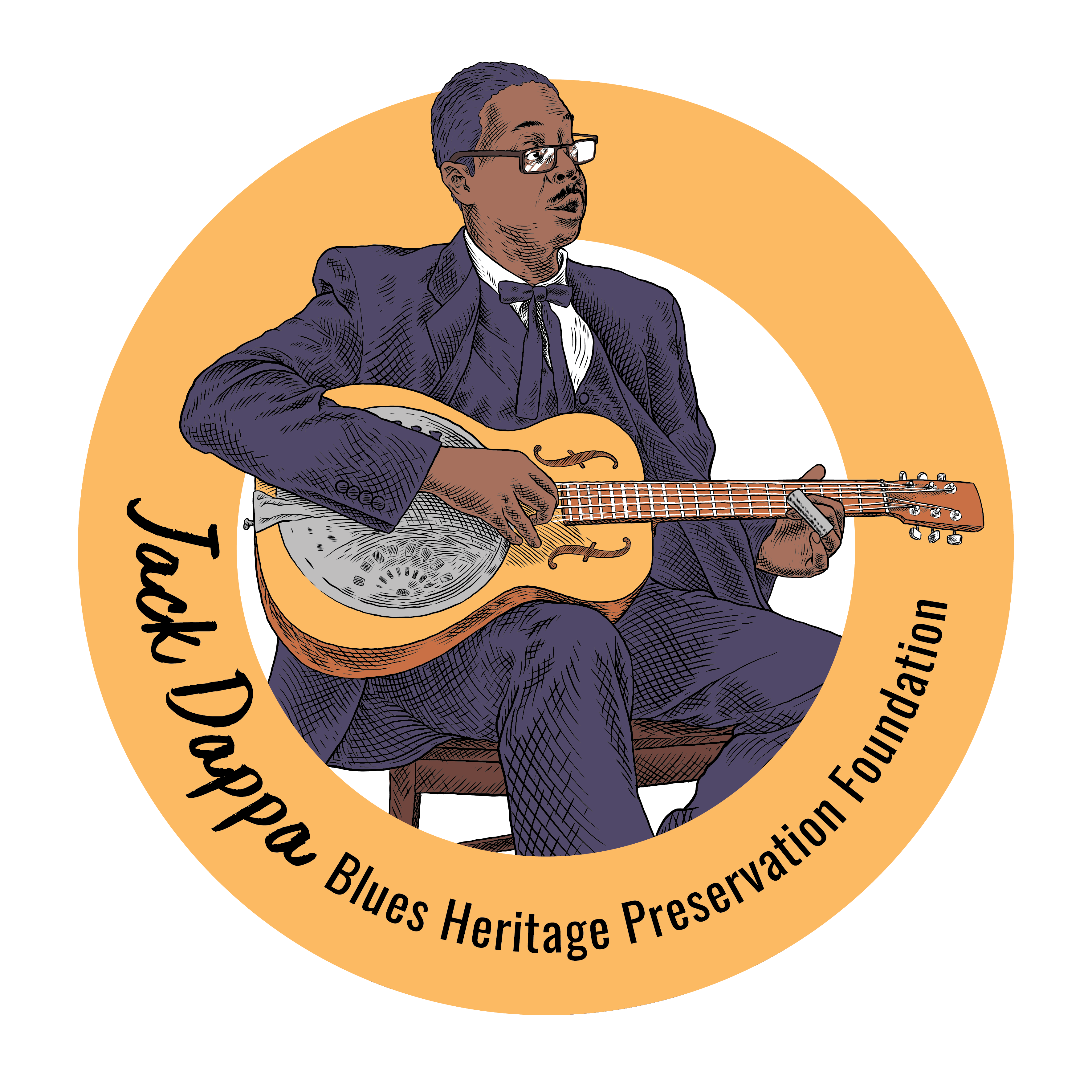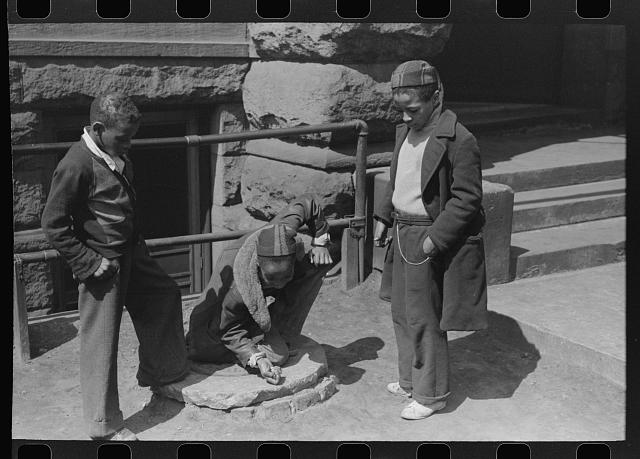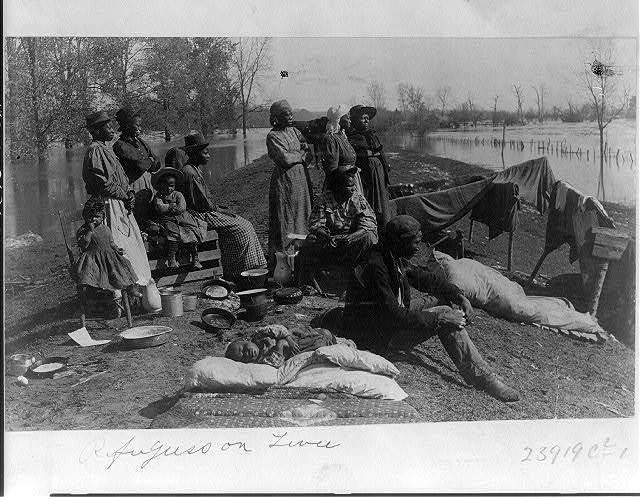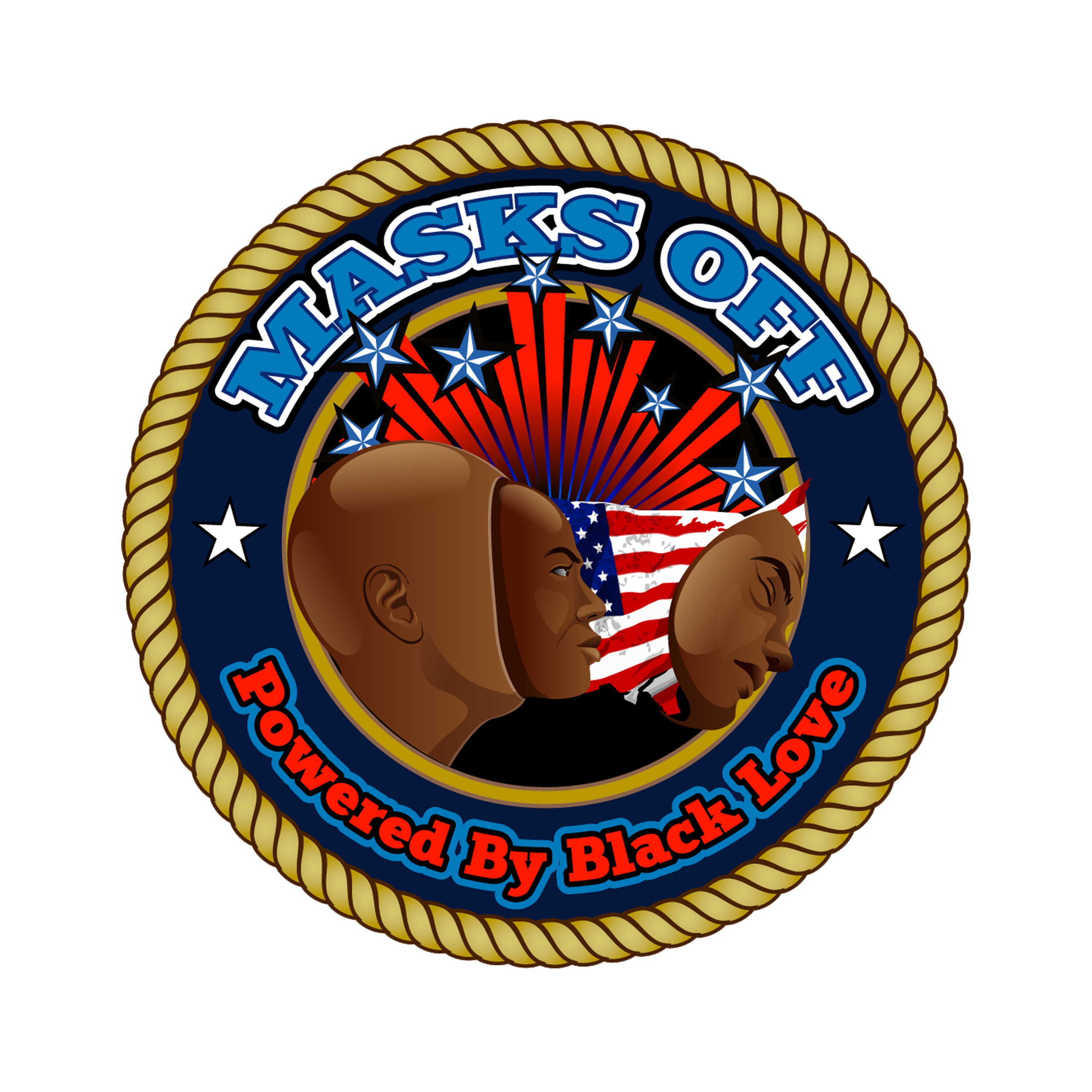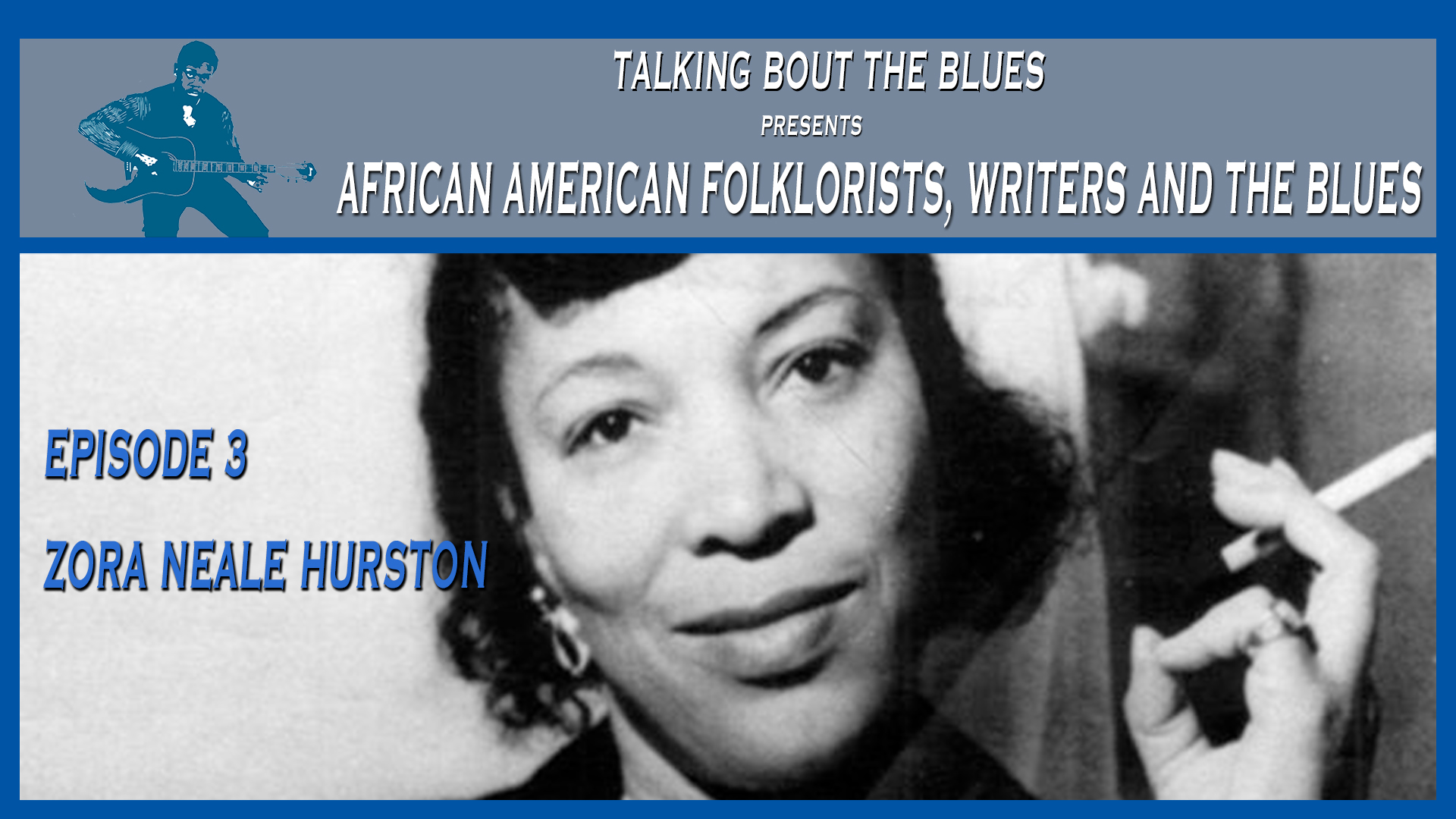Published By:
Lamont Jack Pearley
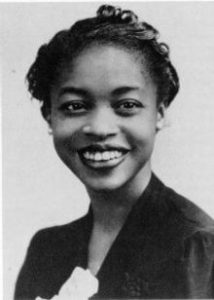 I came across this piece in the “American Life Histories: Manuscripts from the Federal Writers’ Project, 1936 to 1940” after discussing Margaret Walker and her being hired by the Federal Writers Project in 1936 on today’s show! This is one of the many manuscripts that are part of the collection. Which the The Slave Narrative is also a part of.
I came across this piece in the “American Life Histories: Manuscripts from the Federal Writers’ Project, 1936 to 1940” after discussing Margaret Walker and her being hired by the Federal Writers Project in 1936 on today’s show! This is one of the many manuscripts that are part of the collection. Which the The Slave Narrative is also a part of.
It is a very interesting take on the time and climate of Black Chicago. A look into the Black Experience that Cultivated African American Tribal Music.
A Brief description of the “American Life Histories: Manuscripts from the Federal Writers’ Project, 1936 to 1940”
During the Great Depression of the 1930s, when as many as one out of four Americans could not find jobs, the federal government stepped in to become the employer of last resort. The Works Progress Administration (WPA), an ambitious New Deal program, put 8,500,000 jobless to work, mostly on projects that required manual labor. With Uncle Sam meeting the payroll, countless bridges, highways and parks were constructed or repaired.
The WPA included a provision for unemployed artists and writers: the Federal Arts Projects. If they were poor enough to qualify, musicians, actors, directors, painters and writers could work directly for the government. The New Deal arts projects made a lasting impact on American cultural life and none contributed more than the Federal Writers’ Project. At its peak, the Writers’ Project employed about 6,500 men and women around the country, paying them a subsistence wage of about $20 a week.
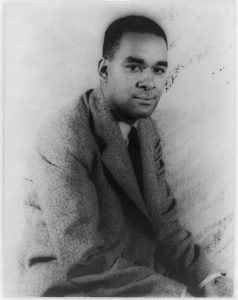
The Writers’ Project provided jobs for a diverse assortment of unemployed white-collar workers including beginning and experienced writers–those who had always been poor and the newly down and out. Among those Federal Writers who went on to gain national literary reputations were novelists Nelson Algren, Saul Bellow and John Cheever, and poet May Swenson. Distinguished African-American writers served literary apprenticeships on the Federal Writers’ Project, including Ralph Ellison, Margaret Walker, Zora Neale Hurston and Richard Wright.
During the Project’s early years, the Federal Writers produced a series of state guidebooks that offer a flavorful sampling of life in the United States. Now considered classics of Americana, these guides remain the Federal Writers’ Project’s best-known undertaking; many have been reissued in the past decade. But the Federal Writers’ Project also left a hidden legacy. In the late 1930s, Federal Writers recorded the life stories of more than 10,000 men and women from a variety of regions, occupations and ethnic groups.
People who told stories of life and work during the 1930s include an Irish maid from Massachusetts, a woman who worked in a North Carolina textile mill, a Scandinavian iron worker, a Vermont farm wife, an African-American worker in Chicago meat packing house, and a clerk in Macy’s department store.
Click here for more
Library of Congress
[The Black South in Chicago] http://www.loc.gov/resource/wpalh0.07070205
[The Black South in Chicago]
[?]
Accession no.
W 3637
Date received
10/10/40
Consignment no.
1
Shipped from
Wash. Office
Label
Amount
4p
WPA L. C. PROJECT Writers’ UNIT
Folklore Collection (or Type)
Title The black south in Chicago
Place of origin Chicago, Illinois Date 5/3/39
Library of Congress
[The Black South in Chicago] http://www.loc.gov/resource/wpalh0.07070205
Project worker Garnett L. Eskew
Project editor
Remarks
W3637
FORM D
Extra Comment
CHICAGO FOLKSTUFF
Negro Lore
FOLKLORE
CHICAGO
[?]
May 26, [?]
STATE Illinois
NAME OF WORKER Garnett L. Eskew
ADDRESS 4700 Kenwood Avenue
DATE May 3, 1939
SUBJECT “The Black South in Chicago”
Library of Congress
[The Black South in Chicago] http://www.loc.gov/resource/wpalh0.07070205
NAME OF INFORMANT George Sims (6034 S. May St., Chicago. This is in addition to
other matters supplied by the same informant two weeks ago)
“Catfish? Who sesso? Hit’s the bes’ eatin’ fish you kin git anywhere. Don’t keer where you
go. There aint nothin’ that tickle your palate like a chunk of channel cat fried crisp. Of co’se
de snot cat good. Th’ ole mud cat aint bad neither. I have eat pompano and buffalo fish
and red snapper and a lot of others. But don’t let nobody tell you any different. Catfish is
the finest eatin of all.”
“In N’Yowliens when I was a boy I never had to buy no fish. All we had ter do wuz to take
a pole and string and hook and go down sit on de steamboat wharf. Sit there and doze
and haul ’em in. Den if we git tired of catfish we could have crabs. The by-yo (bayou) flows
right through de town. Pay a dime fer a little dip-net and some bacon scarps, and go sit in
shade of de oak trees and pull em in! De old crabs, dey catch hold th’ bait and hol’ it wid
dey claws til you pulls it to the top of de water. Den you dip in and lift him out. Crab meat
good eatin too.”
“’Nother dish I likes a lot dat we useter have in N’Yawliens is Jam-lye (Note: jambalaya – a
Creole dish invented by the Spaniards and improved by the French). My wife know how ter
make hit bettern 2 FORM D CHICAGO FOLKSTUFF anybody I ever see. She take some
fish and cut hit up and mix e hit wid cook rice, and season hit up nice and hot. And some
times she put in some chop meat or chicken stead er de fish an’ fry it brawn in plenty of
grease! Sho is tasty eatin!”
“When I wusn’t nothin but a little tad, on Sunday, sometimes, we’d come home from
Church and eat a big dinner. Den I’d take my bucket and nothin’ else but muh bare hands,
and walk out ter de little drain canals dat come outer de swamp. Dat’s whar we ketch de
crawfish. (Crayfish in whut dem creoles call hit). Ketch a whole bucket full and take em
home an’ muh mammy would make de best Crawfish beast (Note: he means Crayfish
Library of Congress
[The Black South in Chicago] http://www.loc.gov/resource/wpalh0.07070205
Bisque ) a man ever pop in his mouf. Dat sho’ly is one fine soup. Haint tasted none since I
got up to Chicago.”
“An Gumbo – ! Didn’t you never eat no Gumbo? You has! Well, den, you know whut I
talking about. Some times muh woman make it wid crabs or swimp; or sometimes wid
chicken, and put in de okra, and make it nice an’ tasty wid sage and bayleaf and thyme!
An’ after hit done cook a long while – – man, dey aint no better eaten no whar!”
“Here in Chicawgo? Yessir, I have done foun’ a place ter git good fresh fish and de kine er
stuff we put in dem Creole foods. Whar at? Over in Jew town on de wes’ side.”
“Boss, less quit talking bout dat N’yawleens food. Hit make hongry.”
“You done ask me ’bout steamboat songs. Hit bin zo long ago, an’ I done jined de church
sense I lef down dar, dat I mos fergit all about Coonjone. But dey wuz one song day we
uster sing dat went like dis:
3
Sing dis song in de city, Roll dat cotton bale! Nigger always happy When he gits out of jail.
Mobile’s got de wimmin, Boston got de beans, New Yawk done got flashin’ swells, But de
nigger like N’yawleens, Cho: Coonjine, baby, won’t you coonjine, Coonjine, honey, is you
game, Mammy won’t lemme coonjine But I coonjine jus’ de same!
“Sing hit fer you? Lawd, boss, I aint sung no sich song for forty years. Hit went like
dis . . . . . . . . . . . . . . . . . . . . . . (NOTE: He sang it, but impossible to reproduce it.)
“We useter sing dat song when I was workin’ on de Alice B. Miller, runnin’ up Yazoo River
and sometime when I work on de Saint John, a cotton boat, dat run up Red River.”
“I ‘member once we had a mighty hard mate name Sam Cotton who wuz too handly wid
de hoe handle. So all de rousters jumped de boat at Vicksburg, and say dey wont work for
Library of Congress
[The Black South in Chicago] http://www.loc.gov/resource/wpalh0.07070205
such a mean mate. So de mate 4 and de capn tie up de boat at Vicksburg and come on
down ter N’yawlin on de rattler. Den dey look me up, and say:
“George, we want you ter git us a mess er rousters”. So I gits together about twenty er de
boys down on de levee and says ter de capn and de mate: “Capn and Capn Sam, dese
hyuh boys is willin’ ter work on de boat, iff do mate is willin’ ter behave hisself.” De capn
he laff and say dat gwinter be all right now, dat Sam will watch hisself. So we take de train
and git de rousters up ter Vicksburg, git on bode de boat and come on down ter NYleens.
De mate (dat is capn Sam) act just a peaceable as a lam’! Eve’thing all right after dat.
